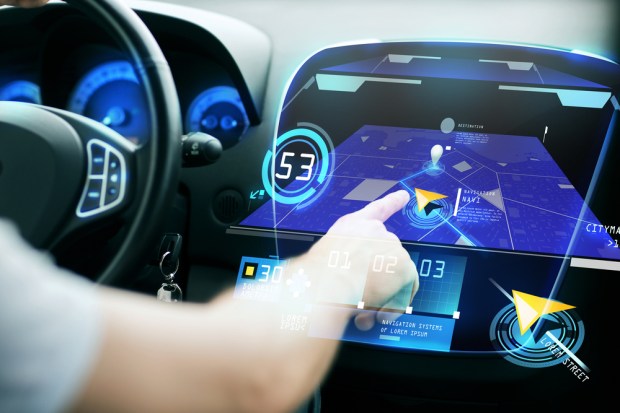Connected Cars Hitch A Ride On Smart City Spending

They are siblings, the concepts of connected vehicles and smart cities.
Tied together by data, sensors, algorithms, software and other technology, the two ecosystems are becoming increasingly difficult to separate in the imagination and in reality. That is leading to more activity and funding designed to advance both concepts, along with more concerns about possible blind spots and dangers.
One of the most recent examples comes from Toronto, where Sidewalk Labs — part of Alphabet, the parent company of Google — recently signed an agreement with local development officials backing plans for a “smart city” along the city’s waterfront. Those plans call for self-driving vehicles, robotic garbage collection, sensors that keep track of when pedestrians want to cross streets, heated bike lanes that do not rely on fossil fuels and other such features.
The project faces likely opposition, though. Among the concerns? Some city residents and officials worry about all the data that will be collected, stored and analyzed for the operation of the automobiles and the smart city — privacy and security concerns that are gaining more attention in general from consumers and lawmakers.
Smart City Spending
The global market for smart city technology will reach an estimated $774.8 billion in 2021, up from $342.4 billion in 2016, according to BCC Research. North America will account for 42 percent of that spending in 2021.
It’s not just large metro areas that are working toward a connected vehicle/smart city future.
Two years ago, Columbus, Ohio won a $40 million grant from the U.S. Department of Transportation’s Smart City Challenge — a program that launched in December 2015 to encourage mid-sized municipalities “to develop ideas for an integrated, first-of-its-kind smart transportation system.”
Now, Columbus has released a plan detailing its vision, which includes technology for some 1,800 vehicles operated by city workers and volunteers that enable all those cars and trucks to communicate with each other and the 113 roadside sensors that are also part of the overall system.
The data collected by the system, along with the communication technology, will enable such traffic signal prioritization, the distribution of emergency brake warnings and other road management tasks. Columbus said it expects to seek bids in early 2019 for hardware and software to support its connected transportation and smart city goals, with testing tentatively scheduled for summer 2020.
Similar activity is happening in Tampa Bay.
The city recently signed an agreement with transportation experts at the University of South Florida that calls for joint work on smart transportation projects with the goal of winning entry into the MetroLab Network, a collaborative group that includes 35 city-university partnerships.
Already, Tampa Bay is creating a small traffic management center on the university, which, despite its name, is located in that city. The city’s Tampa Connected Vehicle Pilot is outfitting “some 1,600 private vehicles with devices that take into account speed, braking distance and other driving data to determine, for example, when a motorist should brake when coming to the end of a freeway off-ramp, given the car’s speed and number of cars ahead,” according to a recent report. To gain participants for the study, the local tollway authority is offering a 30 percent rebate on expressway tools for drivers who take part.
Related to those projects — though not directly related to smart cities, at least not yet — is the coming installation in Colorado by year’s end of 100 roadside sensors on a 90-mile stretch of I-70 between Golden and Vail, according to another report.
“The roadside devices will be able to communicate with the state’s Traffic Management Center, as well as connected vehicles,” it said, and could create an “environment where cars can share billions of data points an hour related to speed and other operations, which are fed into the system to generate alerts and other information.”
Security Weaknesses
That’s not to say the road toward a connected vehicle and smart city future will be a smooth one. So far, much of the technology vital for that future — both hardware and software — “are in fact relatively easy to trick,” reads a recent account from engineering and computing experts at the University of Michigan.
“Just one car that’s transmitting fake data can cause enormous traffic jams, and several attack cars could work together to shut down whole areas. What’s particularly concerning is that our research has found the weakness is not in the underlying communication technology, but in the algorithms actually used to manage the traffic flow,” they wrote.
Among the dangers they described was a “ghost vehicle attack,” which involves making a connected car “device lie about its own position and speed,” which people bent on trouble or causing chaos, for whatever reasons, could use to foul up traffic, even causing accidents.
The spending on smart city technology will keep increasing, and auto makers will keep producing connected cars in partnership with other technology providers. Will concerns about privacy and security force any changes on this path to the smart city-connected vehicle future? That seems a reasonable possibility, given the increased focused on such issues in the wider digital world.
